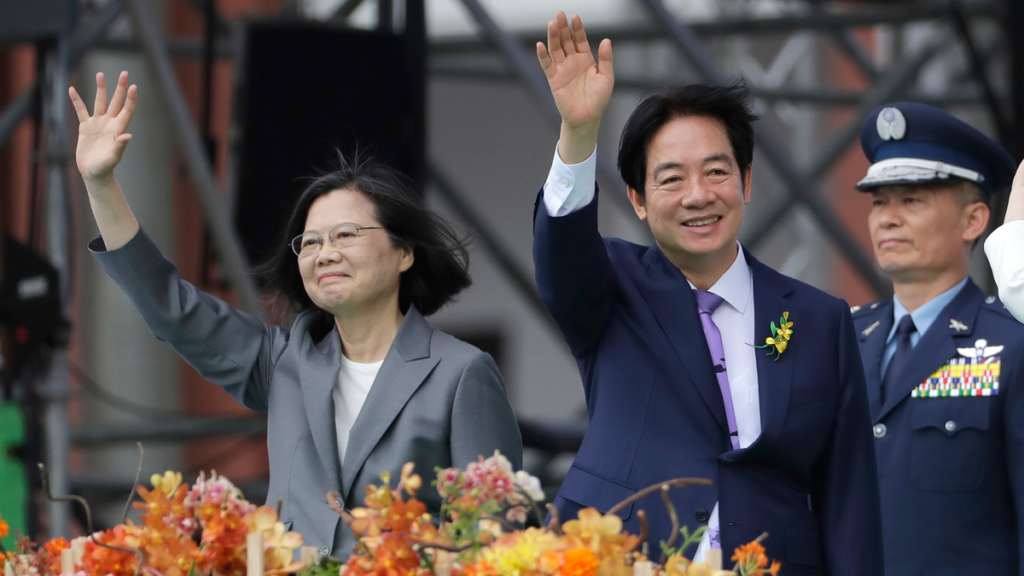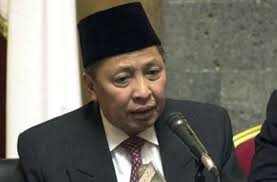Lai Ching-te Sworn In as New Taiwan President, Urges China to Halt Military Intimidation
In a significant political development, Lai Ching-te has been sworn in as the new President of Taiwan. The inauguration ceremony, held in the capital city of Taipei, marks a crucial transition in Taiwanese leadership. Lai, a seasoned politician and former premier, assumes office amidst escalating tensions with China and a growing demand for asserting Taiwan’s sovereignty on the global stage.
During his inaugural address, President Lai emphasized the need for China to cease its military intimidation tactics towards Taiwan. He reiterated Taiwan’s commitment to maintaining peace and stability in the region while safeguarding its democratic values and freedoms. Lai’s presidency is expected to usher in a period of heightened diplomatic engagement and strategic maneuvering as Taiwan navigates its complex relationship with China and asserts its presence on the international stage.
As Lai assumes office, all eyes are on the trajectory of cross-strait relations and the broader geopolitical implications for the Asia-Pacific region. The dynamics between Taiwan and China have long been a focal point of global attention, with the potential to impact regional security and economic stability. Lai’s leadership style and approach towards managing this delicate balance will shape the future direction of Taiwanese politics and its relations with key stakeholders.

Why this News is Important:
Political Transition in Taiwan
The swearing-in of Lai Ching-te as the new President of Taiwan holds significant implications for regional geopolitics. Lai’s inauguration comes at a time of heightened tensions with China and underscores Taiwan’s commitment to defending its sovereignty and democratic values. This development is crucial for understanding the evolving dynamics in the Asia-Pacific region and the complex relationship between Taiwan and China.
Urgent Call for Peace and Stability
President Lai’s call for China to halt military intimidation sends a clear message about Taiwan’s commitment to maintaining peace and stability in the region. The urgency of this appeal reflects the escalating tensions and underscores the need for diplomatic dialogue and conflict resolution mechanisms to prevent any escalation into a full-blown crisis.
Global Attention on Cross-Strait Relations
The transition of power in Taiwan and President Lai’s inaugural address have garnered widespread attention from the international community. The delicate balance of power between Taiwan and China has long been a focal point of global geopolitics, with implications for regional security and economic stability. The outcome of this transition will have far-reaching consequences for the Asia-Pacific region and beyond.
Historical Context:
Taiwan-China Relations:
The relationship between Taiwan and China has been fraught with tension since the Chinese Civil War in the late 1940s. Following the defeat of the Nationalist forces, led by Chiang Kai-shek, by the Communist Party, the Nationalists retreated to Taiwan and established the Republic of China (ROC) government. Since then, both Taiwan and China have claimed to be the legitimate government of all China, leading to a complex political stalemate.
One-China Policy:
The One-China policy, adopted by most countries, recognizes the People’s Republic of China (PRC) as the sole legal government of China, while acknowledging that Taiwan is a part of China. However, Taiwan maintains its own government, military, and democratic institutions, operating as a de facto independent state. The status of Taiwan remains a sensitive issue in international relations, with implications for global diplomacy and security.
5 Key Takeaways from “Lai Ching-te Sworn In as New Taiwan President, Urges China to Halt Military Intimidation”:
| Serial Number | Key Takeaway |
|---|---|
| 1. | Lai Ching-te has been sworn in as the new President of Taiwan, signaling a significant political transition. |
| 2. | President Lai emphasized the need for China to cease its military intimidation tactics towards Taiwan during his inaugural address. |
| 3. | The swearing-in of Lai comes amidst escalating tensions with China and underscores Taiwan’s commitment to defending its sovereignty. |
| 4. | The delicate balance of power between Taiwan and China has far-reaching implications for regional security and economic stability. |
| 5. | President Lai’s leadership style and approach towards managing cross-strait relations will shape the future direction of Taiwanese politics and its global engagement. |
Important FAQs for Students from this News
Q1: What is the significance of Lai Ching-te’s inauguration as the new President of Taiwan?
A: Lai Ching-te’s inauguration marks a significant political transition in Taiwan, signaling a change in leadership and potentially impacting the region’s geopolitics.
Q2: Why is there tension between Taiwan and China?
A: Tension between Taiwan and China stems from their complex historical relationship, with both claiming to be the legitimate government of all China. China considers Taiwan a renegade province and has not ruled out the use of force to bring it under its control.
Q3: What is the One-China policy, and how does it relate to Taiwan?
A: The One-China policy is a diplomatic principle that recognizes the People’s Republic of China as the sole legal government of China. However, it also acknowledges that Taiwan is part of China, despite Taiwan maintaining its own government and democratic institutions.
Q4: How might Lai Ching-te’s presidency affect cross-strait relations?
A: Lai Ching-te’s presidency could impact cross-strait relations depending on his approach towards managing Taiwan’s relationship with China. His call for China to halt military intimidation signals a firm stance on defending Taiwan’s sovereignty.
Q5: What are the broader implications of Taiwan-China tensions for regional security and stability?
A: Taiwan-China tensions have broader implications for regional security and stability, with the potential to disrupt economic relations and escalate into a conflict with far-reaching consequences for the Asia-Pacific region.
Some Important Current Affairs Links















